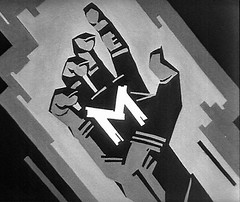Part of the reason why i've been so quiet lately is that i took my resolutions quite seriously, and enrolled in a great amount of stuff outside the office - from workshops and conferences to all sorts of shows, loads of opera and theater included. My choices so far have proven to be inspirational and truly enriching, especially since many of them were doubled by getting in touch with amazing new people.
I have become a regular of Fundatia Calea Victoriei's workshops and gatherings, because their alternative education sort of concept has so far proven to be insightful in a far more substantial manner than advertising language abuse .
 The workshop in the picture is entitled "how to listen to music" and is held by Tiberiu Soare, a brilliant conductor at the National Opera Orchestra. The workshop hasn't finished yet, but i am so in love with it, that i simply felt the need to write about it anyway.
The workshop in the picture is entitled "how to listen to music" and is held by Tiberiu Soare, a brilliant conductor at the National Opera Orchestra. The workshop hasn't finished yet, but i am so in love with it, that i simply felt the need to write about it anyway.I had no idea what to expect when i first went there. It seemed like quite a pretentious induction in classical music directed by an honourable director. It's quite the opposite: it's a very passionate journey into learning how to make the most of any musical experience one might have. Tiberiu is brilliant, passionate, modest and funny, and despite the fact that his musical knowledge seems almost neverending, he doesn't even for one second pretend to be smarter or more entitled to discuss about music than any of his listeners. Maybe this is what makes the meetings great: the fact that what Tiberiu actually does is to inspire us never to take any idea for granted. To judge everything by ourselved, and never be overwhelmed or frustrated by remarks coming from critics, specialists or any other types of people who feel their opinion should be superior. Just as he warned us that a great danger in enjoying music is to fall in love with a particular interpretation of a certain musical piece, and to further dismiss by default other interpretations that might be at least equally good.
He makes music seem within our reach, because he never uses a technical term without explaining it in very simple and common-sensical analogies. It's funny in a way - it's so obvious that he knows so many things from so many different areas, and yet, his language is still easier to understand and his discourse still easier to follow than that of many advertising or marketing people.
We talked about different manners of approaching music, as well as about various potential definitions of music, always connecting music with maths, physics, philosophy and history. This comes as no wonder: as Tiberiu explained, it's essential for a very good conductor to know as many things as possible about the various stages in the history of music - the more he understands the social, economic, historical context, as well as the idea exchanges at a certain time, the easier it is for him to come up with a deeper interpretation of a musical piece.
When many people brag about always knowing exactly "what the author wanted to communicate", Tiberiu helped us realise that sheer music doesn't have a message, it's just an expression of our states of mind: you cannot say "the glass is on the table", no matter how many symphonies you write in your attempt. So music is actually accessible and open to anybody who is willing to use his/her reason, and not take any preconception for granted. And what you actually need to do in order to become better and better at evaluating musical pieces is to practice your comparative and your discriminative capacities. As well as to always have the patience to listen to the end. Nothing more.
I wouldn't stop writing for days if i were to discuss all the things i get out of these workshops, so i will just add various observations derived from it from time to time. In the mean time, i can say that music has never been dearer to me, as is the case with the need for opera :).


No comments:
Post a Comment